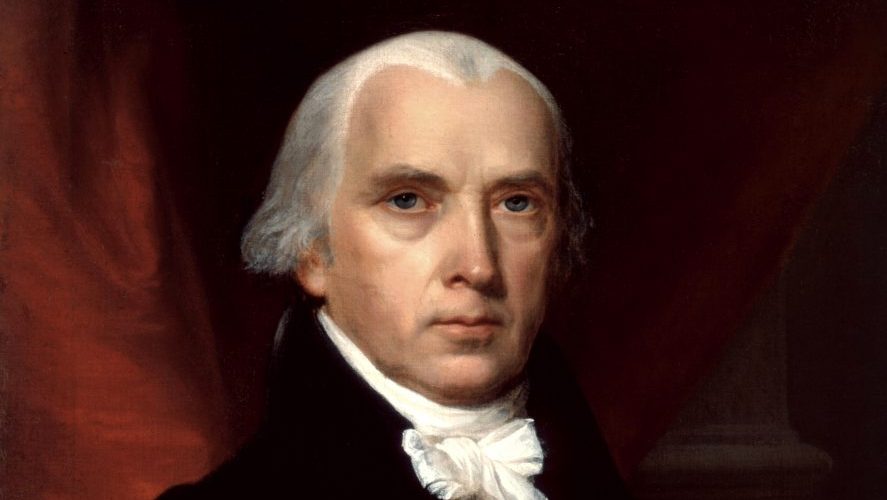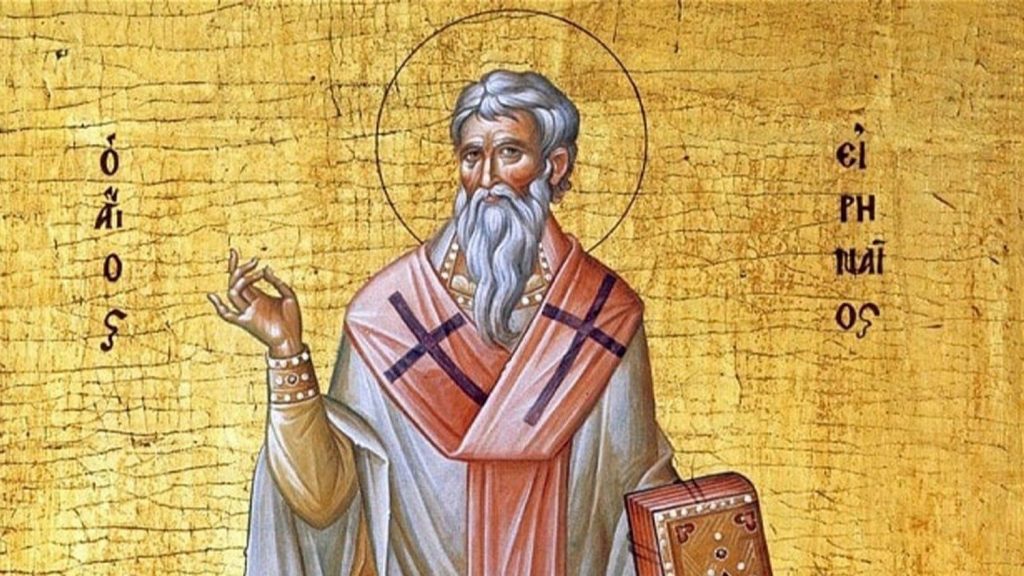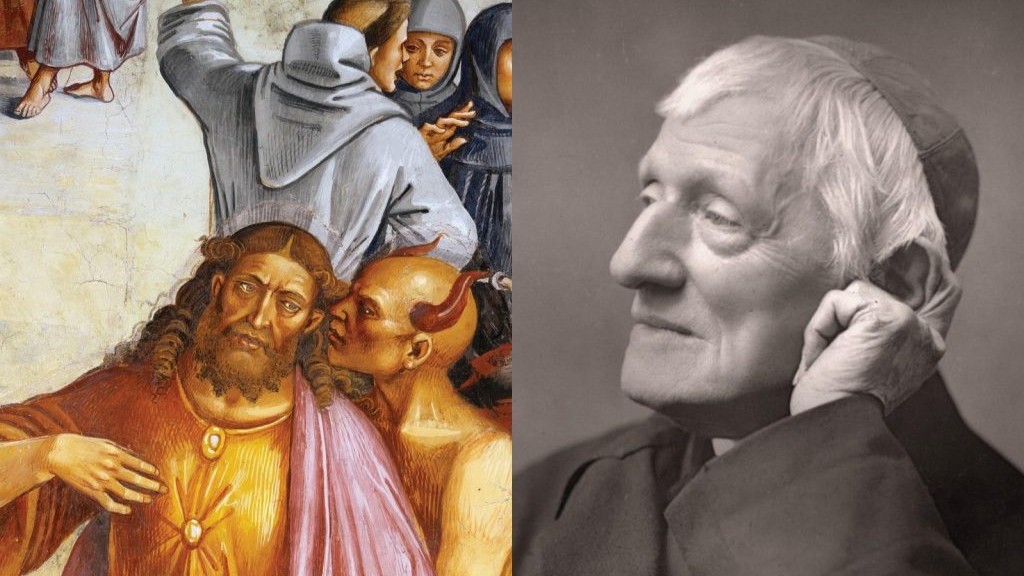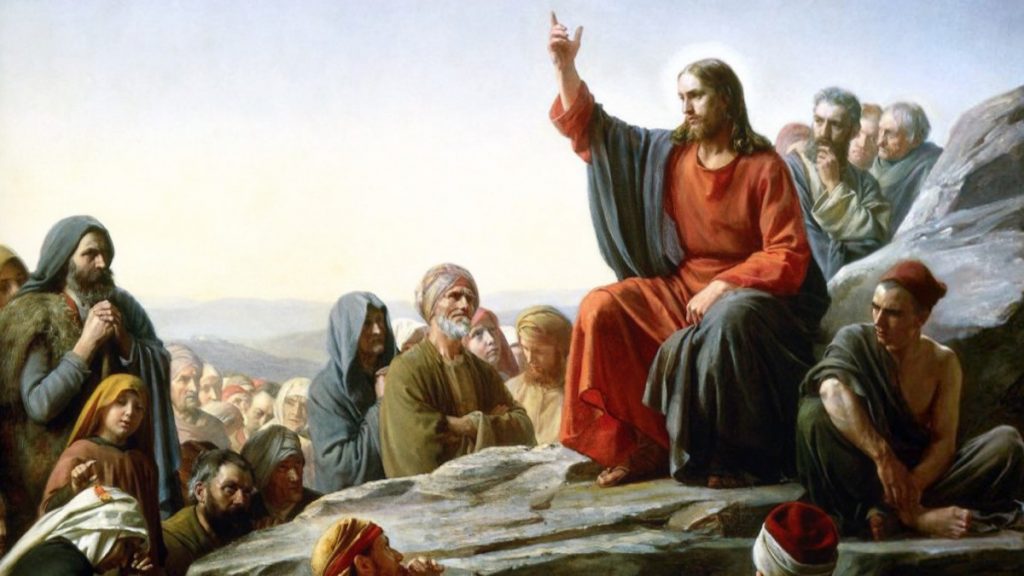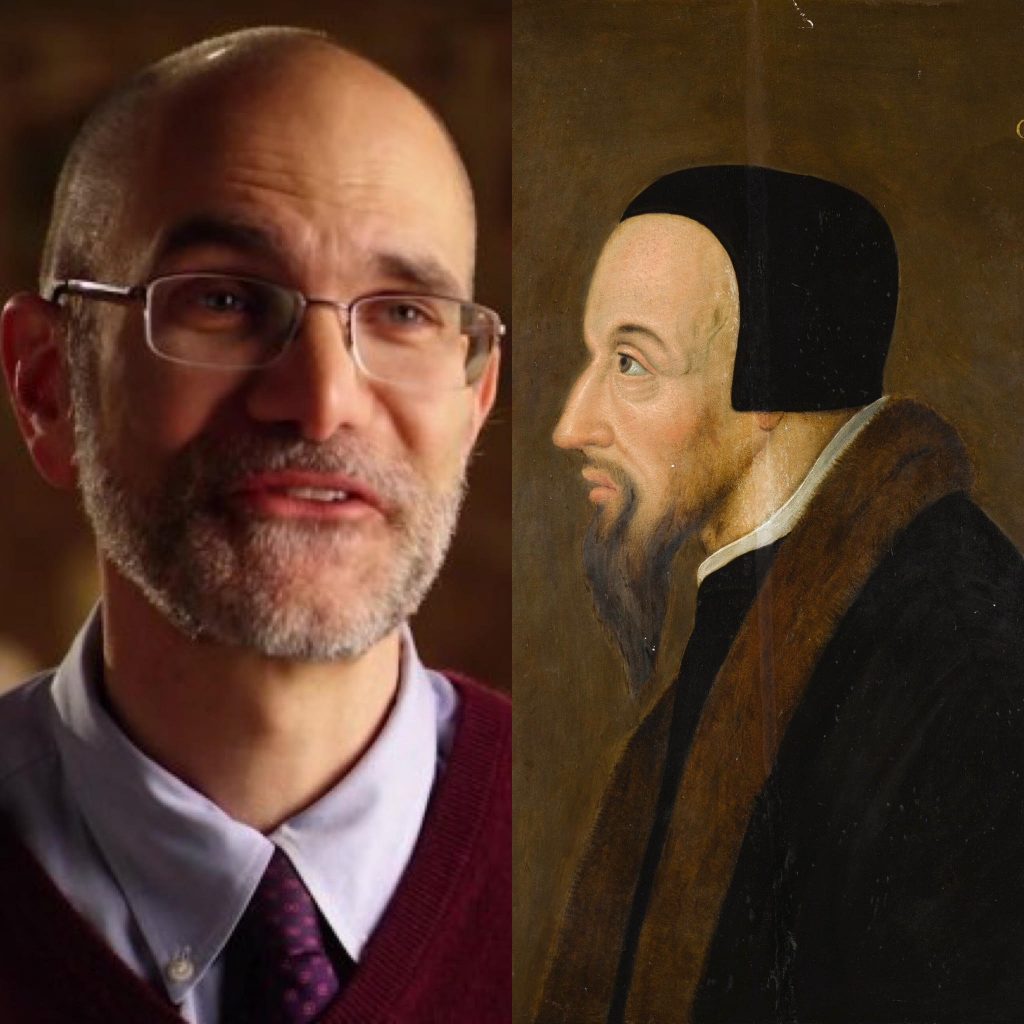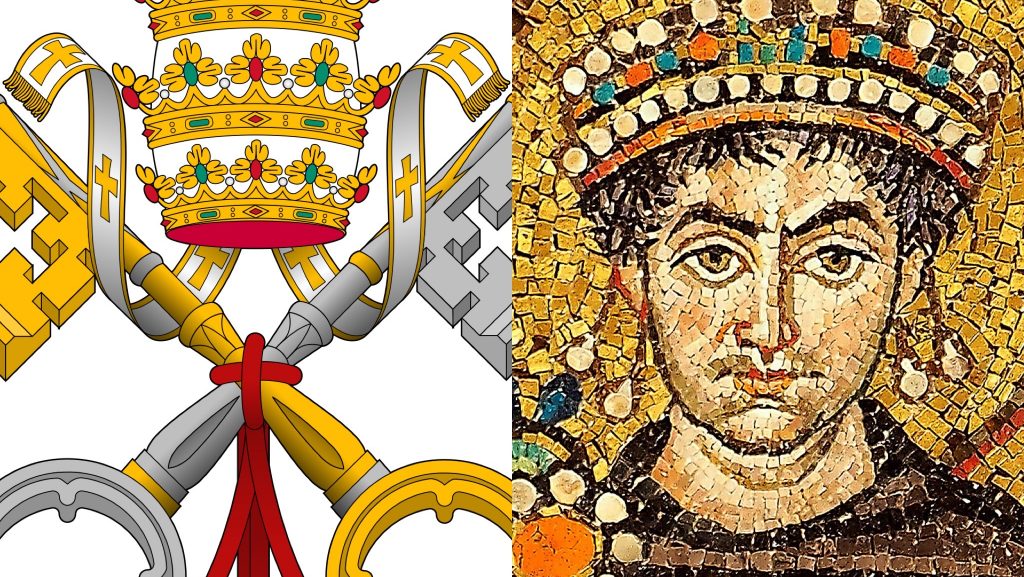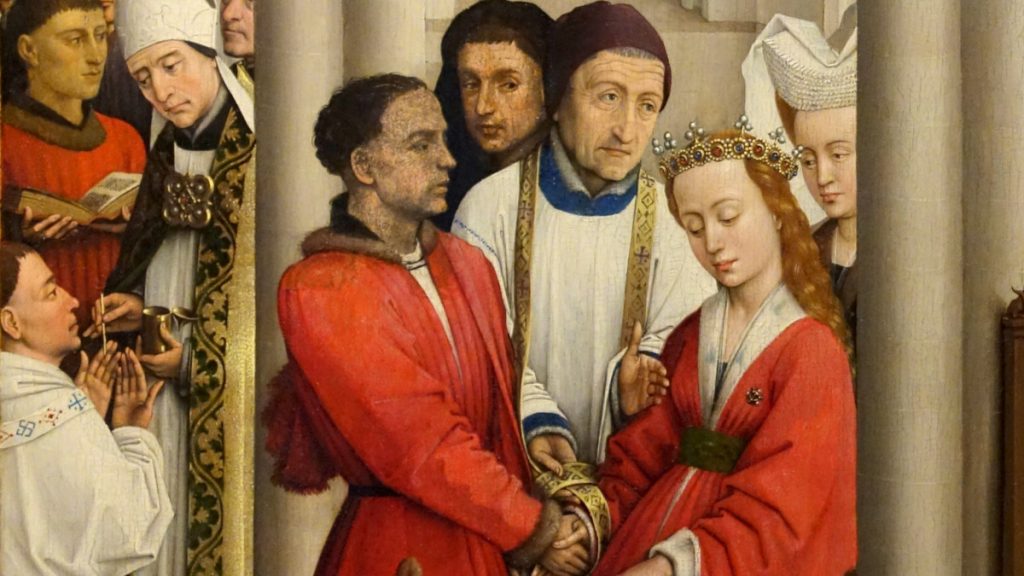(Updated May 28, 2025)
James Madison (1751-1836) was an American Founder who served as the United States’ fifth Secretary of State (1801-1809) and fourth President. He was one of the co-authors of the Federalist Papers, a classic American political text that argued in favor of ratifying the Constitution.
Public Writings
James Madison, A Memorial and Remonstrance Against Religious Assessments (June 20, 1785)
Madison’s Case for Religious Liberty
Because we hold it for a fundamental and undeniable truth, “that Religion or the duty which we owe to our Creator and the manner of discharging it, can be directed only by reason and conviction, not by force or violence” [Article XVI of the Virginia Declaration of Rights, promulgated in 1776]. The Religion then of every man must be left to the conviction and conscience of every man; and it is the right of every man to exercise it as these may dictate. This right is in its nature an unalienable right. It is unalienable, because the opinions of men, depending only on the evidence contemplated by their own minds cannot follow the dictates of other men: It is unalienable also, because what is here a right towards men, is a duty towards the Creator.
It is the duty of every man to render to the Creator such homage and such only as he believes to be acceptable to him. This duty is precedent, both in order of time and in degree of obligation, to the claims of Civil Society. Before any man can be considered as a member of Civil Society, he must be considered as a subject of the Governor of the Universe: And if a member of Civil Society, who enters into any subordinate Association, must always do it with a reservation of his duty to the General Authority; much more must every man who becomes a member of any particular Civil Society, do it with a saving of his allegiance to the Universal Sovereign.
We maintain therefore that in matters of Religion, no man’s right is abridged by the institution of Civil Society and that Religion is wholly exempt from its cognizance. True it is, that no other rule exists, by which any question which may divide a Society, can be ultimately determined, but the will of the majority; but it is also true that the majority may trespass on the rights of the minority.
Because if Religion be exempt from the authority of the Society at large, still less can it be subject to that of the Legislative Body. The latter are but the creatures and vicegerents of the former. Their jurisdiction is both derivative and limited: it is limited with regard to the co-ordinate departments, more necessarily is it limited with regard to the constituents…
Because it is proper to take alarm at the first experiment on our liberties. We hold this prudent jealousy to be the first duty of Citizens, and one of the noblest characteristics of the late Revolution. The freemen of America did not wait till usurped power had strengthened itself by exercise, and entangled the question in precedents. They saw all the consequences in the principle, and they avoided the consequences by denying the principle. We revere this lesson too much soon to forget it. Who does not see that the same authority which can establish Christianity, in exclusion of all other Religions, may establish with the same ease any particular sect of Christians, in exclusion of all other Sects? that the same authority which can force a citizen to contribute three pence only of his property for the support of any one establishment, may force him to conform to any other establishment in all cases whatsoever?
Because the Bill violates that equality which ought to be the basis of every law, and which is more indispensable, in proportion as the validity or expediency of any law is more liable to be impeached. If “all men are by nature equally free and independent,” all men are to be considered as entering into Society on equal conditions; as relinquishing no more, and therefore retaining no less, one than another, of their natural rights. Above all are they to be considered as retaining an “equal title to the free exercise of Religion according to the dictates of Conscience.”
Whilst we assert for ourselves a freedom to embrace, to profess and to observe the Religion which we believe to be of divine origin, we cannot deny an equal freedom to those whose minds have not yet yielded to the evidence which has convinced us. If this freedom be abused, it is an offence against God, not against man: To God, therefore, not to man, must an account of it be rendered…
Because the Bill implies either that the Civil Magistrate is a competent Judge of Religious Truth; or that he may employ Religion as an engine of Civil policy. The first is an arrogant pretension falsified by the contradictory opinions of Rulers in all ages, and throughout the world: the second an unhallowed perversion of the means of salvation.
Because the establishment proposed by the Bill is not requisite for the support of the Christian Religion. To say that it is, is a contradiction to the Christian Religion itself, for every page of it disavows a dependence on the powers of this world: it is a contradiction to fact; for it is known that this Religion both existed and flourished, not only without the support of human laws, but in spite of every opposition from them, and not only during the period of miraculous aid, but long after it had been left to its own evidence and the ordinary care of Providence. Nay, it is a contradiction in terms; for a Religion not invented by human policy, must have pre-existed and been supported, before it was established by human policy. It is moreover to weaken in those who profess this Religion a pious confidence in its innate excellence and the patronage of its Author; and to foster in those who still reject it, a suspicion that its friends are too conscious of its fallacies to trust it to its own merits.
Because experience witnesseth that ecclesiastical establishments, instead of maintaining the purity and efficacy of Religion, have had a contrary operation. During almost fifteen centuries has the legal establishment of Christianity been on trial. What have been its fruits? More or less in all places, pride and indolence in the Clergy, ignorance and servility in the laity, in both, superstition, bigotry and persecution…
Because the establishment in question is not necessary for the support of Civil Government. If it be urged as necessary for the support of Civil Government only as it is a means of supporting Religion, and it be not necessary for the latter purpose, it cannot be necessary for the former. If Religion be not within the cognizance of Civil Government how can its legal establishment be necessary to Civil Government? What influence in fact have ecclesiastical establishments had on Civil Society? In some instances they have been seen to erect a spiritual tyranny on the ruins of the Civil authority; in many instances they have been seen upholding the thrones of political tyranny: in no instance have they been seen the guardians of the liberties of the people. Rulers who wished to subvert the public liberty, may have found an established Clergy convenient auxiliaries.
A just Government instituted to secure and perpetuate it needs them not. Such a Government will be best supported by protecting every Citizen in the enjoyment of his Religion with the same equal hand which protects his person and his property; by neither invading the equal rights of any Sect, nor suffering any Sect to invade those of another.
Because the proposed establishment is a departure from that generous policy, which, offering an Asylum to the persecuted and oppressed of every Nation and Religion, promised a luster to our country, and an accession to the number of its citizens. What a melancholy mark is the Bill of sudden degeneracy? Instead of holding forth an Asylum to the persecuted, it is itself a signal of persecution. It degrades from the equal rank of Citizens all those whose opinions in Religion do not bend to those of the Legislative authority. Distant as it may be in its present form from the Inquisition, it differs from it only in degree. The one is the first step, the other the last in the career of intolerance. The magnanimous sufferer under this cruel scourge in foreign Regions, must view the Bill as a Beacon on our Coast, warning him to seek some other haven, where liberty and philanthropy in their due extent, may offer a more certain repose from his Troubles…
Because it will destroy that moderation and harmony which the forbearance of our laws to intermeddle with Religion has produced among its several sects. Torrents of blood have been spilt in the old world, by vain attempts of the secular arm, to extinguish Religious discord, by proscribing all difference in Religious opinion….If with the salutary effects of this system under our own eyes, we begin to contract the bounds of Religious freedom, we know no name that will too severely reproach our folly. At least let warning be taken at the first fruits of the threatened innovation. The very appearance of the Bill has transformed “that Christian forbearance, love and charity,” which of late mutually prevailed, into animosities and jealousies, which may not soon be appeased. What mischiefs may not be dreaded, should this enemy to the public quiet be armed with the force of a law?
Because the policy of the Bill is adverse to the diffusion of the light of Christianity. The first wish of those who enjoy this precious gift ought to be that it may be imparted to the whole race of mankind. Compare the number of those who have as yet received it with the number still remaining under the dominion of false Religions; and how small is the former!
Does the policy of the Bill tend to lessen the disproportion? No; it at once discourages those who are strangers to the light of revelation from coming into the Region of it; and countenances by example the nations who continue in darkness, in shutting out those who might convey it to them. Instead of Levelling as far as possible, every obstacle to the victorious progress of Truth, the Bill with an ignoble and unchristian timidity would circumscribe it with a wall of defense against the encroachments of error…
Because finally, “the equal right of every citizen to the free exercise of his Religion according to the dictates of conscience” is held by the same tenure with all our other rights. If we recur to its origin, it is equally the gift of nature; if we weigh its importance, it cannot be less dear to us; if we consult the “Declaration of those rights which pertain to the good people of Virginia, as the basis and foundation of Government,” it is enumerated with equal solemnity, or rather studied emphasis. Either then, we must say, that the Will of the Legislature is the only measure of their authority; and that in the plenitude of this authority, they may sweep away all our fundamental rights; or, that they are bound to leave this particular right untouched and sacred…
We the Subscribers say, that the General Assembly of this Commonwealth have no such authority: And that no effort may be omitted on our part against so dangerous an usurpation, we oppose to it, this remonstrance; earnestly praying, as we are in duty bound, that the Supreme Lawgiver of the Universe, by illuminating those to whom it is addressed, may on the one hand, turn their Councils from every act which would affront his holy prerogative, or violate the trust committed to them: and on the other, guide them into every measure which may be worthy of his [blessing, may re]dound to their own praise, and may establish more firmly the liberties, the prosperity and the happiness of the Commonwealth.
James Madison, Federalist No. 37 (January 11, 1788)
The real wonder is that so many difficulties should have been surmounted [in forming the Constitution], and surmounted with a unanimity almost as unprecedented as it must have been unexpected. It is impossible for any man of candor to reflect on this circumstance without partaking of the astonishment. It is impossible for the man of pious reflection not to perceive in it a finger of that Almighty hand which has been so frequently and signally extended to our relief in the critical stages of the revolution.
James Madison, Federalist No. 51 (February 8, 1788)
But what is government itself, but the greatest of all reflections on human nature? If men were angels, no government would be necessary. If angels were to govern men, neither external nor internal controls on government would be necessary. In framing a government which is to be administered by men over men, the great difficulty lies in this: you must first enable the government to control the governed; and in the next place oblige it to control itself.
James Madison, Federalist No. 52 (February 8, 1788)
Under these reasonable limitations, the door of this part of the federal government is open to merit of every description, whether native or adoptive, whether young or old, and without regard to poverty or wealth, or to any particular profession of religious faith.
Official Speeches, Proclamations, Etc. as President (1809-1817)
James Madison, Presidential Proclamation (July 9, 1812)
Prayer and Fasting
Whereas the Congress of the United States, by a joint Resolution of the two Houses, have signified a request, that a day may be recommended, to be observed by the People of the United States, with religious solemnity, as a day of public Humiliation and Prayer: and whereas such a recommendation will enable the several religious denominations and societies so disposed, to offer, at one and the same time, their common vows and adorations to Almighty God, on the solemn occasion produced by the war, in which he has been pleased to permit the injustice of a foreign power to involve these United States; I do therefore recommend the third Thursday in August next, as a convenient day, to be so set apart, for the devout purposes of rendering to the Sovereign of the Universe, and the Benefactor of mankind, the public homage due to his holy attributes; of acknowledging the transgressions which might justly provoke the manifestations of His divine displeasure; of seeking His merciful forgiveness, and His assistance in the great duties of repentance and amendment; and, especially, of offering fervent supplications, that in the present season of calamity and war, he would take the American People under His peculiar care and protection; that He would guide their public councils, animate their patriotism, and bestow His blessing on their arms; that He would inspire all nations with a love of justice and of concord, and with a reverence for the unerring precept of our holy religion, to do to others as they would require that others should do to them; and, finally, that turning the hearts of our enemies from the violence and injustice which sway their councils against us, He would hasten a restoration of the blessings of Peace. Given at Washington the ninth day of July, in the year of our Lord one thousand eight hundred and twelve.
James Madison, Proclamation on Day of Public Humiliation and Prayer (July 23, 1813)
Prayer and Fasting
Whereas in times of public calamity such as that of the war brought on the United States by the injustice of a foreign government it is especially becoming that the hearts of all should be touched with the same and the eyes of all be turned to that Almighty Power in whose hand are the welfare and the destiny of nations:
I do therefore issue this my proclamation, recommending to all who shall be piously disposed to unite their hearts and voices in addressing at one and the same time their vows and adorations to the Great Parent and Sovereign of the Universe that they assemble on the second Thursday of September next in their respective religious congregations to render Him thanks for the many blessings He has bestowed on the people of the United States; that He has blessed them with a land capable of yielding all the necessaries and requisites of human life, with ample means for convenient exchanges with foreign countries; that He has blessed the labors employed in its cultivation and improvement; that He is now blessing the exertions to extend and establish the arts and manufactures which will secure within ourselves supplies too important to remain dependent on the precarious policy or the peaceable dispositions of other nations, and particularly that He has blessed the United States with a political Constitution rounded on the will and authority of the whole people and guaranteeing to each individual security, not only of his person and his property, but of those sacred rights of conscience so essential to his present happiness and so dear to his future hopes; that with those expressions of devout thankfulness be joined supplications to the same Almighty Power that He would look down with compassion on our infirmities; that He would pardon our manifold transgressions and awaken and strengthen in all the wholesome purposes of repentance and amendment; that in this season of trial and calamity He would preside in a particular manner over our public councils and inspire all citizens with a love of their country and with those fraternal affections and that mutual confidence which have so happy a tendency to make us safe at home and respected abroad; and that as He was graciously pleased heretofore to smile on our struggles against the attempts of the Government of the Empire of which these States then made a part to wrest from them the rights and privileges to which they were entitled in common with every other part and to raise them to the station of an independent and sovereign people, so He would now be pleased in like manner to bestow His blessing on our arms in resisting the hostile and persevering efforts of the same power to degrade us on the ocean, the common inheritance of all, from rights and immunities belonging and essential to the American people as a coequal member of the great community of independent nations; and that, inspiring our enemies with moderation, with justice, and with that spirit of reasonable accommodation which our country has continued to manifest, we may be enabled to beat our swords into plowshares and to enjoy in peace every man the fruits of his honest industry and the rewards of his lawful enterprise.
If the public homage of a people can ever be worthy the favorable regard of the Holy and Omniscient Being to whom it is addressed, it must be that in which those who join in it are guided only by their free choice, by the impulse of their hearts and the dictates of their consciences; and such a spectacle must be interesting to all Christian nations as proving that religion, that gift of Heaven for the good of man, freed from all coercive edicts, from that unhallowed connection with the powers of this world which corrupts religion into an instrument or an usurper of the policy of the state, and making no appeal but to reason, to the heart, and to the conscience, can spread its benign influence everywhere and can attract to the divine altar those freewill offerings of humble supplication, thanksgiving, and praise which alone can be acceptable to Him whom no hypocrisy can deceive and no forced sacrifices propitiate.
Upon these principles and with these views the good people of the United States are invited, in conformity with the resolution aforesaid, to dedicate the day above named to the religious solemnities therein recommended.
James Madison, Presidential Proclamation (November 16, 1814)
Prayer and Fasting
The two Houses of the National Legislature having, by a joint Resolution expressed their desire, that in the present time of public calamity and war, a day may be recommended to be observed by the people of the United States as a day of Public Humiliation and Fasting, and of Prayer to Almighty God, for the safety and welfare of these States, his blessing on their arms, and a speedy restoration of peace:
I have deemed it proper, by this Proclamation to recommend that Thursday the twelfth of January next be set apart as a day on which all may have an opportunity of voluntarily offering, at the same time, in their respective religious assemblies, their humble adoration to the Great Sovereign of the Universe, of confessing their sins and transgressions, and of strengthening their vows of repentance and amendment. They will be invited by the same solemn occasion to call to mind the distinguished favors conferred on the American people, in the general health which has been enjoyed, in the abundant fruits of the season; in the progress of the arts, instrumental to their comfort, their prosperity, and their security; and in the victories which have so powerfully contributed to the defense and protection of our Country; a devout thankfulness for all which ought to be mingled with their supplications to the Beneficent Parent of the human race, that He would be graciously pleased to pardon all their offences against Him; to support and animate them in the discharge of their respective duties; to continue to them the precious advantages flowing from political Institutions so auspicious to their safety against dangers from abroad, to their tranquility at home, and to their liberties, civil and religious; and that He would in a special manner, preside over the nation, in its public Councils and constituted authorities, giving wisdom to its measures and success to its arms, in maintaining its rights, and in overcoming all hostile designs and attempts against it; and finally, that by inspiring the Enemy with dispositions favorable to a just and reasonable peace, its blessings may be speedily and happily restored.
James Madison, Thanksgiving Proclamation (March 4, 1815)
The Senate and the House of Representatives of the United States, have, by a joint Resolution, signified their desire, that a day may be recommended, to be observed by the people of the United States with religious solemnity, as a day of thanksgiving and of devout acknowledgments to Almighty God, for his great goodness manifested in restoring to them, the blessing of peace.
No people ought to feel greater obligations to celebrate the goodness of the Great Disposer of events, and of the Destiny of Nations, than the people of the United States. His kind Providence originally conducted them, to one of [the] best portions of the dwelling place, allotted for the great family of the Human race. He protected and cherished them, under all the difficulties and trials to which they were exposed in their early days. Under His fostering care, their habits, their sentiments, and their pursuits, prepared them, for a transition in due time to a state of Independence and of self-Government. In the arduous struggle by which it was attained, they were distinguished by multiplied tokens of his benign interposition. During the interval which succeeded, he reared them into the strength, and endowed them with the resources, which have enabled them to assert their national rights, and to enhance their national character, in another arduous conflict, which is now happily terminated, by a peace and reconciliation with those who have been our Enemies. And to the same Divine Author of every good and perfect Gift, we are indebted for all those privileges and advantages, religious as well as civil, which are so richly enjoyed in this favored land.
It is for blessings, such as these, and more especially for the restoration of the blessing of peace, that I now recommend, that the second Thursday in April next be set apart, as a day on which the people of every religious denomination, may, in their solemn Assemblies, united their hearts and their voices, in a free will offering to their Heavenly Benefactor, of their homage of thanksgiving, and of their songs of praise.
Letters and Private Documents (Retirement, 1817-1836)
James Madison, Detached Memoranda: Religious Proclamations (c. January 31, 1820)
Madison Reflects on Religious Proclamations
They [the United States] have the noble merit of first unshackling the conscience from persecuting laws, and of establishing among religious Sects a legal equality. If some of the States have not embraced this just and this truly Xn [Christian] principle in its proper latitude, all of them present examples by which the most enlightened States of the old world may be instructed…
Ye States of America which retain in your Constitutions or Codes any aberration from the sacred principle of religious liberty, by giving to Caesar what belongs to God, or joining together what God has put asunder, hasten to revise your systems, and make the example of your Country as pure and complete, in what relates to the freedom of the mind and its allegiance to its maker, as in what belongs to the legitimate objects of political and civil institutions…
Religious proclamations by the Executive recommending thanksgivings and fasts are shoots from the same root with the legislative acts reviewed.
Although recommendations only, they imply a religious agency, making no part of the trust delegated to political rulers.
The objections to them are:
That governments ought not to interpose in relation to those subject to their authority but in cases where they can do it with effect. An advisory government is a contradiction in terms.
The members of a government as such can in no sense, be regarded as possessing an advisory trust from their Constituents in their religious capacities. They cannot form an Convocation, Council or Synod, and as such issue decrees or injunctions addressed to the faith or the Consciences of the people. In their individual capacities, as distinct from their official station, they might unite in recommendations of any sort whatever; in the same manner as any other individuals might do. But then their recommendations ought to express the true character from which they emanate.
They seem [to] imply and certainly nourish the erroneous idea of a national religion. This idea just as it related to the Jewish nation under a theocracy, having been improperly adopted by so many nations which have embraced Xnity [Christianity], is too apt to lurk [in] the bosoms even of Americans, who in general are aware of the distinction between religious and political societies. The idea also of a union of all who form one nation under one government in acts of devotion to the God of all is an imposing idea. But reason and the principles of the Xn [Christian] religion require that [if] all the individuals composing a nation were of the same precise creed and wished to unite in a universal act of religion at the same time, the union ought to be affected through the intervention of their religious not of their political representatives. In a nation composed of various sects, some alienated widely from others, and where no agreement could take place through the former, the interposition of the latter is doubly wrong.
The tendency of the practice, to narrow the recommendation to the standard of the predominant sect. The first Proclamation of General Washington dated January 1, 1795 recommending a day of thanksgiving, embraced all who believed in a supreme ruler of the Universe. That of Mr. Adams called for a Xn [Christian] worship. Many private letters reproached the Proclamations issued by J.M. [James Madison] for using the general terms, used in that of President Washington’s and some of them for not inserting particulars according with the faith of certain Xn [Christian] sects. The practice, if not strictly guarded, naturally terminates in a conformity to the creed of the majority and of a single sect, if amounting to a majority.
The last and not the least Objection is the liability of the practice, to subserviency [sic] to political views; to the scandal of religion, as well as the increase of party animosities.
James Madison, Detached Memoranda: Military Chaplains (c. January 31, 1820)
Madison Reflects on Chaplains in Congress and the Military
Is the appointment of Chaplains to the two Houses of Congress consistent with the Constitution, and with the pure principle of religious freedom?
In strictness the answer on both points must be in the negative. The Constitution of the U.S. forbids everything like an establishment of a national religion. The law appointing Chaplains [done by Congress in 1789] establishes a religious worship for the national representatives, to be performed by Ministers of religion, elected by a majority of them; and these are to be paid out of the national taxes. Does not this involve the principle of a national establishment, applicable to a provision for a religious worship for the Constituent as well as of the representative Body, approved by the majority, and conducted by Ministers of religion paid by the entire nation.
The establishment of the chaplainship to Congress is a palpable violation of equal rights, as well as of Constitutional principles. The tenets of the Chaplains elected shut the door of worship against the members whose creeds and consciences forbid a participation in that of the Majority. To say nothing of other sects, this is the case with that of Roman Catholics and Quakers who have always had members in one or both of the Legislative branches. Could a Catholic clergyman ever hope to be appointed a Chaplain? To say that [his] religious principles are obnoxious or that his sect is small, is to lift the veil at once and exhibit in its naked deformity the Doctrine that religious truth is to be tested by numbers, or that the major sects have a right to govern the minor.
If Religion consist in voluntary acts of individuals, singly, or voluntarily associated, and it be proper that public functionaries, as well as their constituents should discharge their religious duties, let them like their Constituents, do so at their own expense. How small a contribution from each member of Congress would suffice for the purpose? How just would it be in its principle? How noble in its exemplary sacrifice to the genius of the Constitution; and the divine right of conscience? Why should the expense of a religious worship for the Legislature, be paid by the public, more than that for the Executive or Judiciary branch of the government?
Were the establishment to be tried by its fruits, are not the daily devotions conducted by these legal Ecclesiastics, already degenerating into a scanty attendance, and a tiresome formality?
Rather than let this step beyond the landmarks of power have the effect of a legitimate precedent, it will be better to apply to it the aphorism de minimis non curat lex [“The law does not concern itself with trifles”]: or to class it cum maculis quas aut incuria fudit, aut humana parum cavit natura [“I shall not take offence at a few blots which a careless hand has let drop, or human frailty has failed to avert”].
Better also to disarm in the same way the precedent of Chaplainships [sic] for the army and navy, than erect it into a political authority in matters of religion. The object of this establishment is seducing; the motive to it is laudable. But is it not safer to adhere to a right principle, and trust to its consequences, than confide in the reasoning however specious in favor of a wrong one. Look through the armies and navies of the world, and say whether in the appointment of their ministers of religion, the spiritual interest of the flocks or the temporal interest of the Shepherds, be most in view: whether here, as elsewhere the political care of religion, is not a nominal more than a real aid. If the spirit of armies be devout, the spirit out of the armies will never be less so; and a failure of religious instruction and exhortation from a voluntary source within or without, will rarely happen: and if such be not the spirit of armies, the official services of their Teachers are not likely to produce it. It is more likely to flow from the labors of a spontaneous Zeal. The armies of the puritans had their appointed Chaplains, but without these there would have been no lack of public devotion in that devout age.
The case of navies with insulated crews may be less within the scope of these reflections. But it is not entirely so. The chance of a devout officer, might be of as much worth to religion, as the service of an ordinary chaplain. But we are always to keep in mind that it is safer to trust the consequences of a right principle, than reasonings in support of a bad one.
James Madison, To Jacob de la Motta (August, 1820)
Religious Liberty and the Jews
I have received your letter…with the Discourse delivered at the consecration of the Hebrew Synagogue at Savannah, for which you will please to accept my thanks.
The history of the Jews must forever be interesting. The modern part of it is at the same time so little generally known, that every ray of light on the subject has its value.
Among the features peculiar to the political system of the U. States, is the perfect equality of rights which it secures to every religious sect. And it is particularly pleasing to observe in the good citizenship of such as have been most distrusted and oppressed elsewhere, a happy illustration of the safety and success of this experiment of a just and benignant policy. Equal laws protecting equal rights are found as they ought to be presumed, the best guarantee of loyalty and love of country; as well as best calculated to cherish that mutual respect and good will among Citizens of every religious denomination, which are necessary to social harmony and most favorable to the advancement of truth. The account you give of the Jews of your Congregation brings them fully within the scope of these observations.
